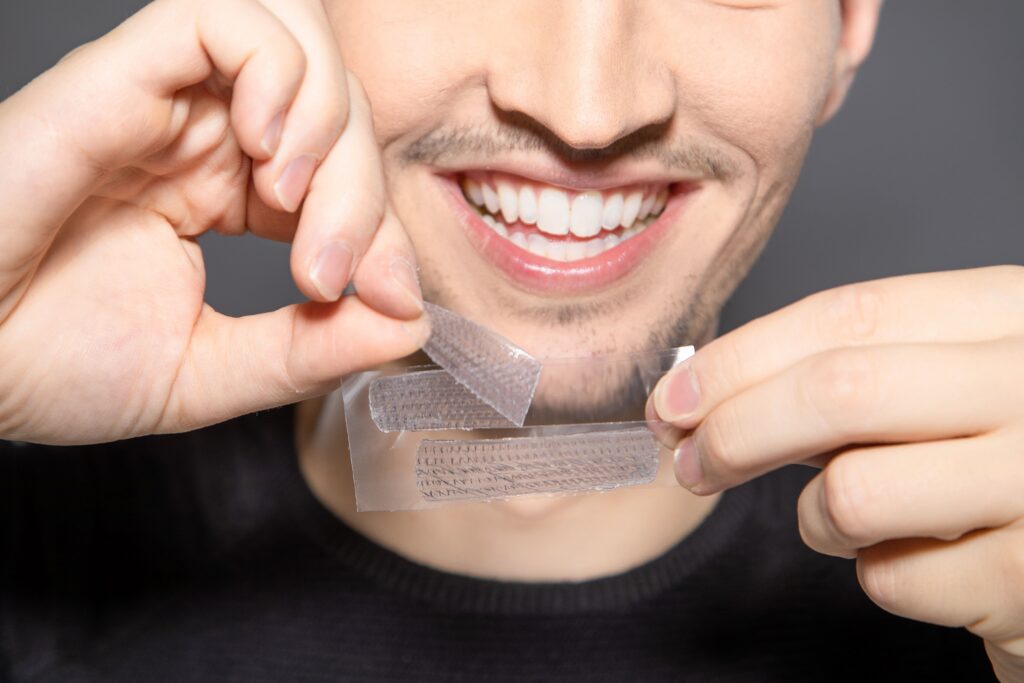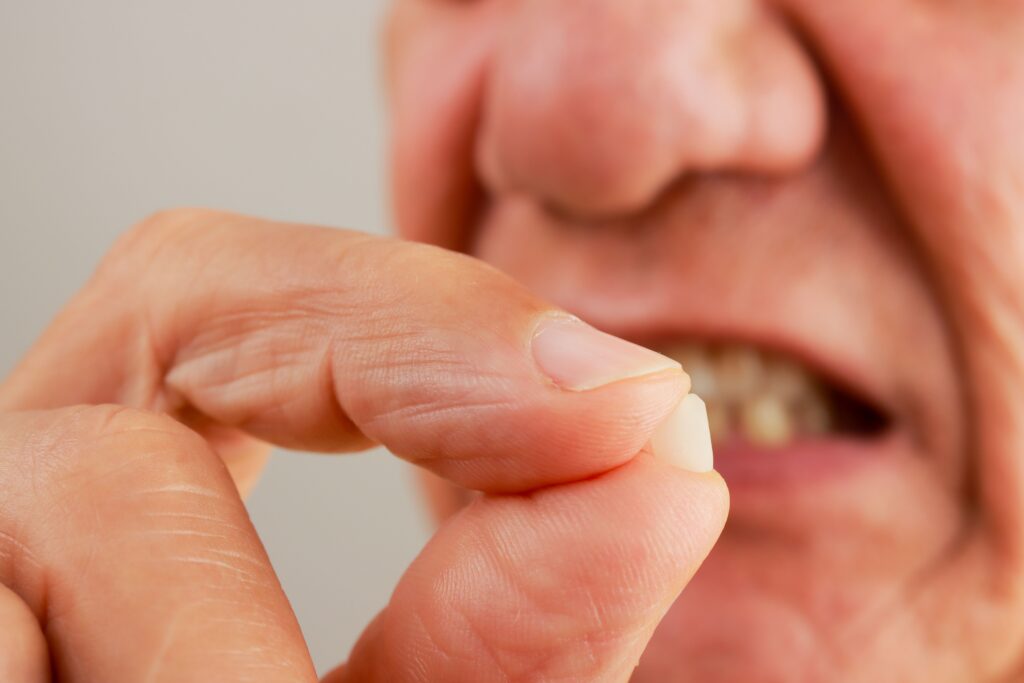A bright, white smile is something many people desire, but some might wonder: does whitening your teeth make them sensitive? Tooth sensitivity is a common side effect of whitening treatments, but the good news is that not everyone will experience it, and it usually doesn’t last long. In this article, we’ll dive into why teeth whitening can lead to sensitivity, what you can do about it, and how to whiten your teeth safely without causing discomfort.
What Is Tooth Sensitivity?

Tooth sensitivity is when your teeth hurt or feel discomfort in response to certain things, like hot or cold foods, beverages, or even air. People with sensitive teeth often experience a sharp or stabbing pain in one or more teeth. This discomfort can last for a few seconds or longer.
There are several reasons why teeth can become sensitive, but when it comes to teeth whitening, the sensitivity is typically caused by the whitening process itself.
Why Does Whitening Your Teeth Cause Sensitivity?
When you whiten your teeth, you’re using chemicals—usually hydrogen peroxide or carbamide peroxide—to break down stains on the surface or inside your teeth. These chemicals work by entering the enamel (the hard outer layer of the teeth) and reaching the dentin, the layer beneath it.
- The Enamel Layer: Enamel is the protective barrier of your teeth, but it can be porous. This means that when you use whitening agents, they can temporarily open up the pores in the enamel, allowing the whitening agents to reach deeper layers of the tooth.
- The Dentin Layer: The dentin contains tiny nerve endings. When the whitening agents penetrate the enamel and reach the dentin, it can cause discomfort or sensitivity, especially if the teeth are already weakened or worn down.
The effect of whitening products can cause increased sensitivity because the chemicals temporarily leave the dentin more exposed than usual.
How Common Is Sensitivity After Whitening?
Tooth sensitivity after whitening is very common, but it doesn’t happen to everyone. Many people can use whitening products without feeling any discomfort. However, some people may experience a noticeable increase in sensitivity, especially if they already have sensitive teeth to begin with.
Factors that can increase the likelihood of tooth sensitivity include:
- Using Whitening Products Too Often: Overuse of whitening products can cause your enamel to wear down more than normal, leading to more sensitivity.
- Pre-existing Sensitive Teeth: People who already have sensitive teeth might be more likely to feel discomfort during or after whitening treatments.
- Whitening Strength: Stronger bleaching agents used in professional treatments or certain home whitening products may cause more sensitivity than milder options.
- Brushing Too Hard: If you brush your teeth too hard, it can wear down the enamel, which can increase sensitivity when whitening.
How Long Does Whitening Sensitivity Last?
The good news is that any sensitivity you experience after whitening is usually temporary. In most cases, it lasts only a few hours to a few days after you finish the whitening treatment. The discomfort typically fades as your teeth recover and the whitening agents leave the enamel.
If you continue to experience sensitivity long after whitening, you may want to consult with a dentist to rule out any other dental issues, such as gum disease or cavities, which could also cause sensitivity.
What Can You Do to Reduce Sensitivity During Teeth Whitening?

If you’re concerned about sensitivity while whitening your teeth, there are several things you can do to minimize discomfort and protect your teeth:
1. Use a Whitening Product Designed for Sensitive Teeth
Some teeth whitening products are specially formulated for people with sensitive teeth. These products often contain lower concentrations of bleaching agents, which are less likely to cause irritation or sensitivity. Additionally, some products include ingredients that help to protect the enamel and reduce discomfort.
- Look for products labeled “for sensitive teeth” when shopping for whitening strips, gels, or toothpaste.
- If you’re getting a professional whitening treatment, talk to your dentist about using a product specifically designed to minimize sensitivity.
2. Take Breaks Between Whitening Treatments
If you’re using at-home whitening products, be sure to follow the recommended guidelines for how often you should apply them. Overusing whitening products can lead to prolonged sensitivity and enamel damage.
- If you experience discomfort, try spacing out your whitening treatments to give your teeth time to recover.
- Avoid whitening every day. Instead, stick to a schedule that allows your teeth to rest between treatments, such as whitening once a week or every other week.
3. Use Toothpaste for Sensitive Teeth
If your teeth are already sensitive before whitening, or if you experience sensitivity during the whitening process, switching to toothpaste designed for sensitive teeth can help. These toothpastes contain ingredients like potassium nitrate or strontium chloride, which help block the nerve endings in your teeth and reduce sensitivity.
- Start using a toothpaste for sensitive teeth a few days before you begin whitening, and continue using it throughout the whitening process.
4. Avoid Hot or Cold Foods and Drinks
While whitening your teeth, you may experience increased sensitivity to temperature. To minimize discomfort, try to avoid eating or drinking very hot or cold foods and beverages, such as ice cream, hot coffee, or cold sodas.
- Stick to lukewarm or room-temperature foods and drinks during the whitening process to help reduce sensitivity.
- You can also avoid acidic foods like citrus fruits and vinegar, which can increase tooth sensitivity.
5. Don’t Brush Your Teeth Too Hard
Brushing your teeth too aggressively can cause your enamel to wear down, leading to more sensitivity. Be gentle with your brushing technique, especially while whitening your teeth, as hard brushing can exacerbate the problem.
- Use a soft-bristled toothbrush and brush in gentle, circular motions instead of scrubbing back and forth.
6. Talk to Your Dentist About Professional Treatments
If you’re concerned about sensitivity or want a quicker, more effective whitening solution, talk to your dentist about professional whitening treatments. Dentists can customize whitening treatments for your specific needs and may be able to reduce the risk of sensitivity by using a lower concentration of bleaching agents or applying desensitizing treatments.
- Professional whitening treatments tend to be stronger and more effective than at-home products, but a dentist can help minimize the risk of sensitivity by carefully monitoring the process.
What to Do If Sensitivity Doesn’t Go Away
If your sensitivity lasts longer than a few days or becomes more severe, it’s important to contact your dentist. They can evaluate the situation and determine if there’s an underlying issue causing the sensitivity, such as:
- Cavities: Cavities or tooth decay can make your teeth more sensitive, and whitening treatments can worsen this issue.
- Gum Recession: If your gums have receded, the underlying dentin might be exposed, causing sensitivity.
- Enamel Erosion: Over-whitening or aggressive brushing can erode your enamel, leading to long-term sensitivity.
Your dentist can help you find a solution, whether it’s adjusting your whitening routine, treating an underlying dental issue, or offering desensitizing treatments.
Is Whitening Your Teeth Safe for Sensitive Teeth?

Yes, whitening your teeth is generally safe for people with sensitive teeth, as long as you take the proper precautions and follow the instructions carefully. If you have pre-existing tooth sensitivity, it’s a good idea to consult with your dentist before starting any whitening treatment to make sure it’s safe for your teeth and gums.
Using products designed for sensitive teeth, taking breaks between treatments, and practicing good oral hygiene can help reduce the risk of discomfort. Remember, the sensitivity you feel is usually temporary, and the results of your whitening treatment will last much longer.
Conclusion
Teeth whitening is a safe and effective way to brighten your smile, but it can cause sensitivity for some people. The discomfort is usually temporary and can be managed with the right precautions. If you experience sensitivity, there are several steps you can take to reduce the discomfort, such as using products made for sensitive teeth, taking breaks between treatments, and avoiding extreme temperatures.
If you have concerns or if your sensitivity doesn’t go away, it’s always a good idea to talk to your dentist. They can help you find the best whitening method for your teeth and ensure your smile stays bright and healthy.





